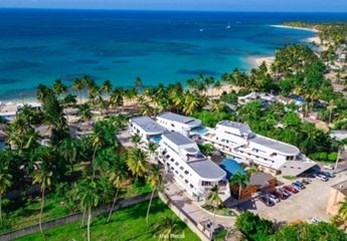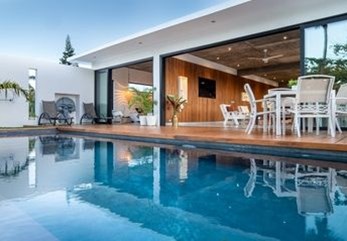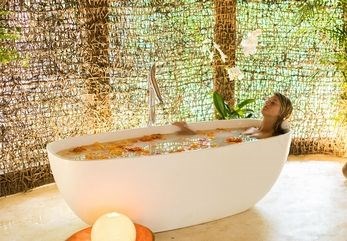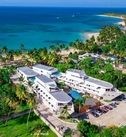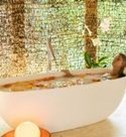
ASSOCIATION "CORAL LAS TERRENAS"

Repopulating coral reef:
The survival of coral reefs is a global concern that the Dominican Republic takes very seriously. Numerous reef repopulation programs are advancing throughout the island, in Punta Cana and on the North Coast, under the control of the Ministry of the Environment.
Philippe Siebert founded the Las Terrenas Coral Association in 2017 and is in charge, with the support of the Dominican Foundation of Marine Studies Fundemar to repopulate the coral reef of Las Terrenas.
All coral reefs on the planet are in danger, a phenomenon that has been a growing problem for the past 30 years brought on by the effects of the aggravated pollution of the seas and global warming.
Officially 50% of all coral reefs worldwide have already destroyed.
We are seeing, worldwide, a disturbing and exponential acceleration of this degradation. A significant example, the Great Australian Reef, that stretches 2600 km, lost 22% of its coral in 2016 alone.
Alarming and appalling!
The corals are live animals that reproduce and grow several dozens of centimeters per year.
The health of a coral reef is vital to coastal protection, the beaches, the moderation of the phenomena of the tides, storms, movements of the sandy bottoms ... all the benefits that you can imagine for the use of a barrier .
The reefs are also responsible for filtering carbon dioxide and are considered the lungs of the sea.
In Las Terrenas, Philippe along with the Department of the Environment and Fundamar Foundation of Bayahibe found that 95% of the Las Terrenas barrier is virtually asphyxiated.
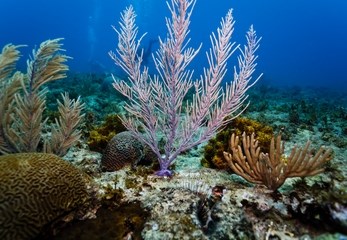
A phenomenon that is simple and complex at the same time! The causes here, as in other places, are a chain of circumstances.
Overfishing in the vicinity of the coral reef affects the balance of marine fauna, where each species has a role and participates in the maintenance and cleaning of corals. Each of these species has a specificity in its mission, such as the parrot fish, which eats dead coral and algae and excretes sand producing a half ton a year.
An ecological accident in the waters of Miami led to the invasion of Lionfish in the Greater Caribbean ten years ago. This terribly aggressive and poisonous marine predator of Asian origin is particularly voracious. He can eat up to 2/3 of his own weight in live fish daily and is extraordinarily fertile laying nearly 1.5 million eggs per year. This invasion has had an unprecedented impact on fauna, the reefs, herbaria and mangroves throughout the Caribbean.
Global warming causes the irreversible increase of the temperature in the oceans which is unfavorable to the natural vitality of the corals.
Increased pollution, caused in particular by overflowing rivers that frequently dump garbage and toxic waste into the oceans towards the barriers.
And, finally, the unawareness of fishermen and tourists who do not hesitate, even today, to trample on the reef without realizing its fragility.
Abandoned by its fish-cleaner fauna and without a protected ecosystem, the 8-km reef of Las Terrenas gradually degraded and was buried in sand and pollution.
The reef coral, traumatized by these aggressions gradually suffocates, begins to turn white, a sure sign of its decline!
The challenge for Philippe and his 15 volunteers.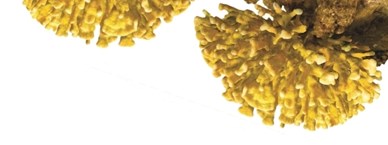
An expert in underwater life, Philippe began some years ago to change the behavior of fishermen, to sensitize them to reproduction periods (from June to September), to teach them the basics and to respect the rules of the ecological chain in order to initiate the repopulation of the marine fauna, which is essential for the survival of the corals.
In 2017, with the personal support of President Danilo, the accreditation of the Ministry of the Environment and in collaboration with Fundemar, the Dominican Foundation for Marine Studies, Philippe founded the Association Coral Las Terrenas to organize the repopulation of the coral reef.
Having already installed on the high seas, with his team of 15 volunteers, 10 nurseries of coral shoots that will be transplanted (in 18 months) to the reef. A true coral nursery! The coral used is an Acropora Cerviconis, recommended by all international organizations for its strength and ability to grow of 8 to 15cm per year. Sprouts are stowed in horizontal metal structures on the seabed, specially designed in the form of marine animals such as starfish, hammerhead shark, manta ray, tortoise and of course whale tail. This is an added attraction when an underwater tour around the nurseries is authorized.
Philippe believes that he will need approximately 5 to 6 years of continuous work to effectively repopulate the 8km of reef and he strongly hopes that residents and visitors will participate in saving and protecting our corals, a vital ecosystem for 80% of the marine species and to stop the erosion of our beaches.


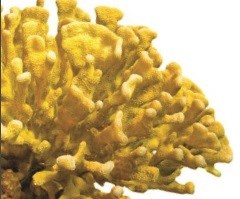
Association CORAL LAS TERRENAS- Turtle Dive - Paseo de la Costarena - Las Terrenas -Tel (1) 829 903 06 59 – turtledivecenter@gmail.com Turle Dive Center Web Page
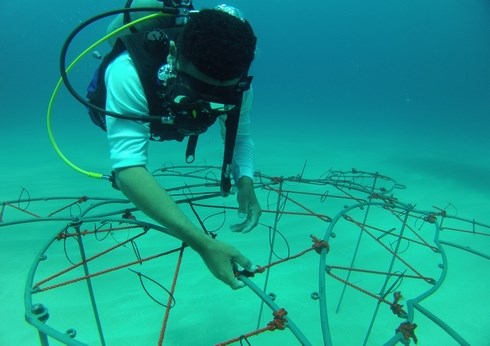
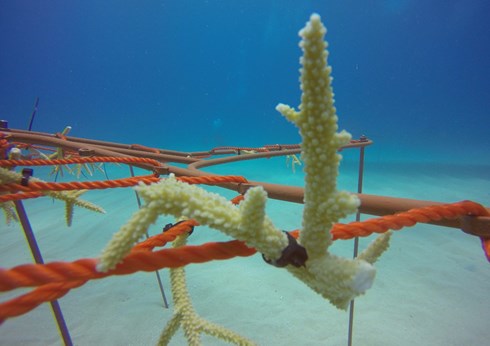
Related news
Coconut Whispers Spa at the Sublime Samaná
Nestled between the Hotel Sublime Samana and the V Samana Ho...Ver más

